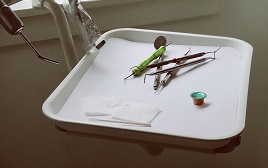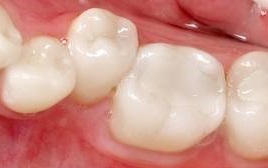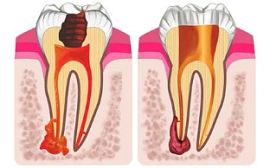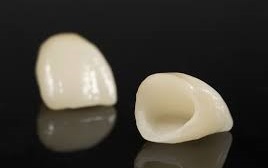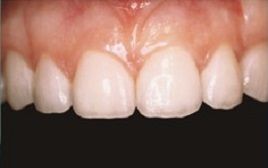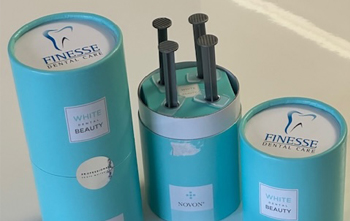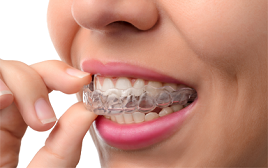Dentures
Are non permanent removable prosthesis that replace teeth and soft tissues to restore function and appearance.
Dentures are made of either acrylic (plastic) or metal or softer flexible material called Valplast.
Types of dentures
Partial Denture
Partial dentures replace teeth that are missing and can sometimes be supported by the teeth you have left. Partial dentures can be held in place by design (i.e. they are made to sit into areas which prevent it from falling out), or they can have a metal base, with little clasps which sit against the teeth and prevent dislodging. Sometimes the remaining parts of teeth can be used to help retain the denture, such as little magnets placed into the root surfaces of worn teeth.
.png)
Acrylic partial denture
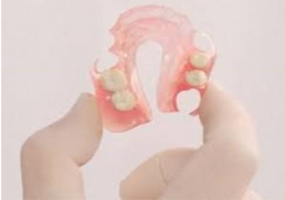
Valplast partial denture

Chrome partial denture
Complete/Full Dentures
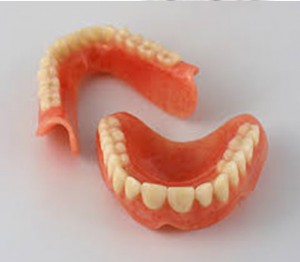
A ‘complete’ or ‘full’ denture is one which replaces all the natural teeth in either the upper or lower jaw.
Full dentures, to replace all your own teeth, fit snugly over your gums. They will help you to eat comfortably and speak clearly, and will improve your confidence and self-esteem. The dentures are held in place using a number of elements - complete dentures are held in place by forming a seal against the palate, and saliva (spit) can help significantly with this process.
Process:
Construction of dentures is complex and requires experience and skill, both on the part of the dentist and the technician. Complete dentures can often require up to six visits by the patient, and a similar number of laboratory stages. However, the process can also take longer if certain stages need to be re-recorded or repeated.
Immediate Dentures
Usually dentures can be fitted straight after your teeth have been removed. These are called ‘immediate dentures’. You will need to visit us beforehand to take impressions of your mouth and to choose shade for your teeth.
With immediate dentures you don’t have to be without teeth while your gums are healing. However, bone and gums can shrink over time, especially during the first six months after your teeth have been taken out. If your gums shrink, your immediate dentures may need relining, adjusting or even replacing. We will be able to talk to you about this.
Sometimes we may advise you to wait until your gums are healed before having your dentures, as this can sometimes provide a better fit. Healing may take several months.
We take measurements and impressions of your mouth, then get the dental technician at the laboratory to construct your dentures.





